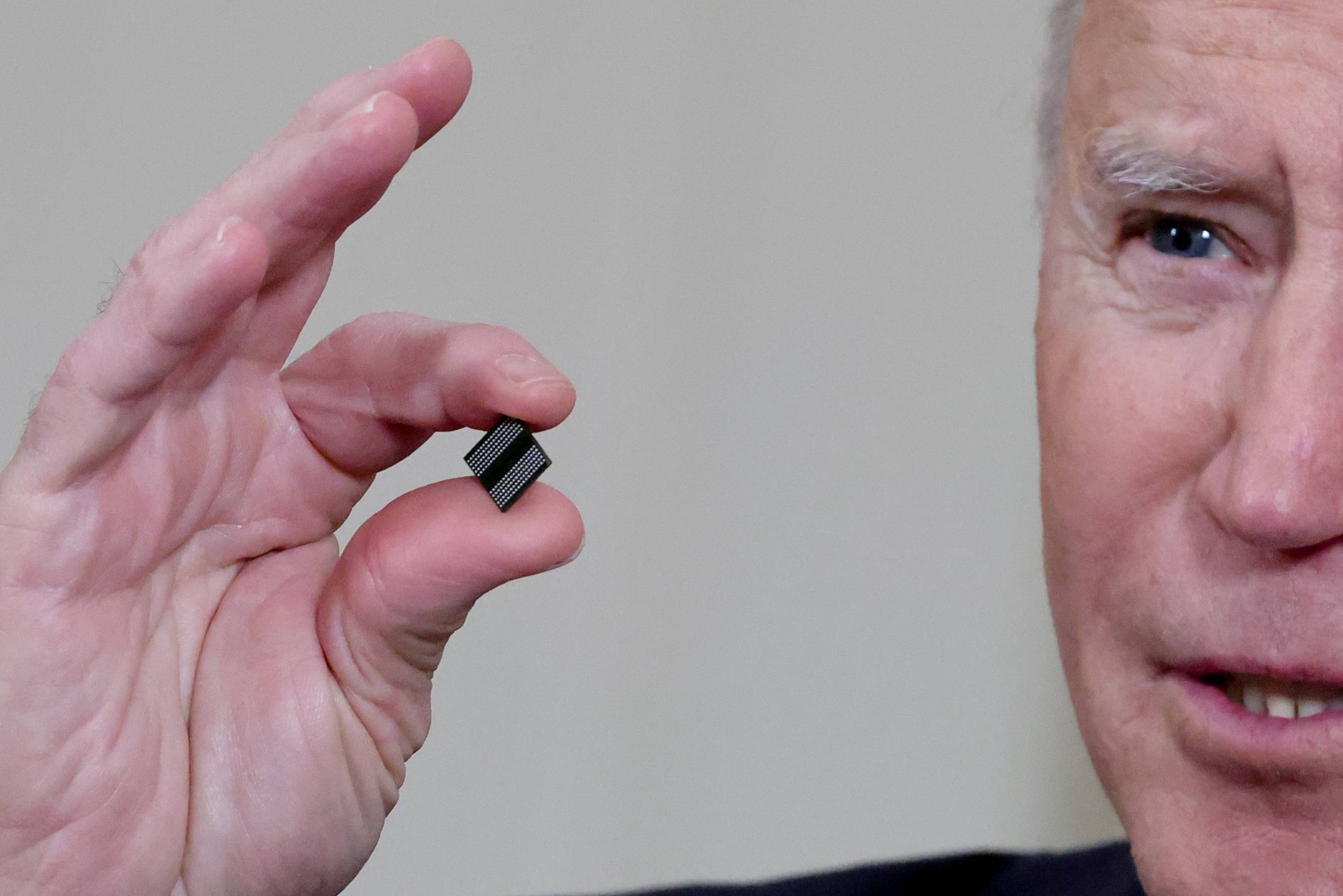U.S. President Joe Biden’s blueprint for the U.S. semiconductor industry marks an ambitious effort to set industrial policy for a critical sector of the economy, but the strategy will need more money and global support to take back chip supremacy and pre-empt a rival effort from China.
The White House on Tuesday outlined a sweeping plan to secure the conduits for critical products from medicines to chips, responding in part to the growing economic and political sway of its Asian rival. Semiconductors — the basic yet incredibly sophisticated components in almost every modern device — took center stage in a 250-page White House report, which highlighted Beijing’s "ultimate goal of cyber sovereignty and establishing first-mover advantage.”
The U.S. Senate expressed bipartisan support by passing a bill offering $52 billion to bolster domestic chip manufacturing the same day. That’s aimed at reassuring industry leaders like Intel Corp., Samsung Electronics Co. and Taiwan Semiconductor Manufacturing Co. as they consider expanding investments in production capacity in the country. It’s a hefty pledge, but the money will go fast in an era where a single advanced wafer fab runs more than $10 billion.



















With your current subscription plan you can comment on stories. However, before writing your first comment, please create a display name in the Profile section of your subscriber account page.